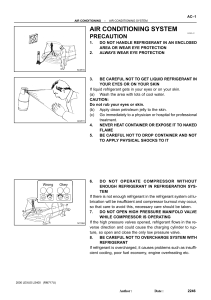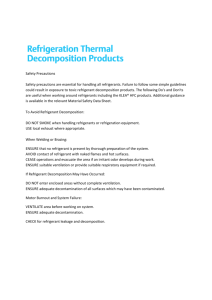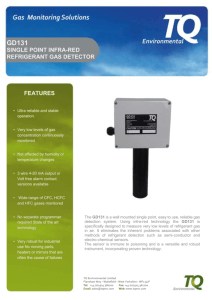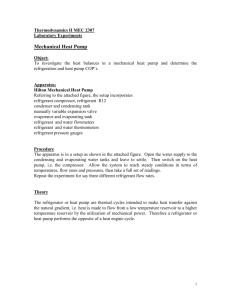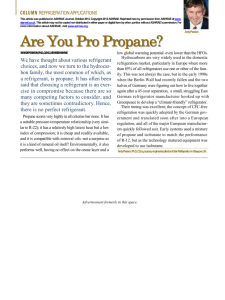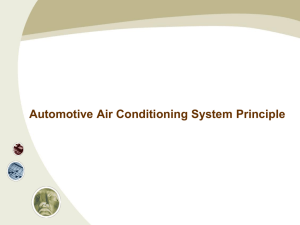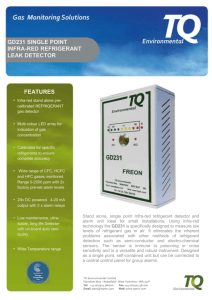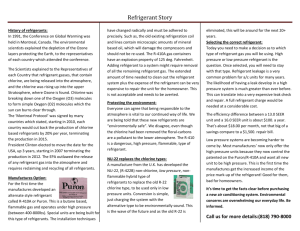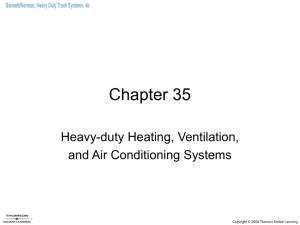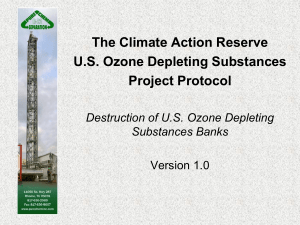Air Conditioning Inspections, CIBSE TM44 Guidance and EPBD
advertisement
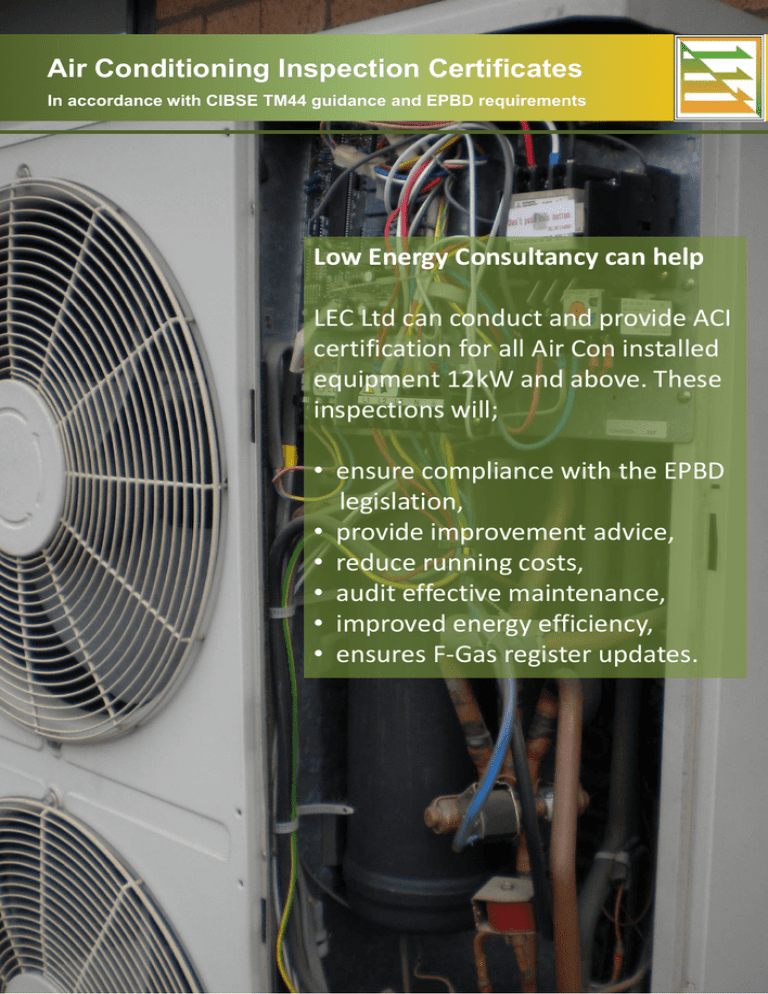
Air Conditioning Inspection Certificates In accordance with CIBSE TM44 guidance and EPBD requirements Low Energy Consultancy can help LEC Ltd can conduct and provide ACI certification for all Air Con installed equipment 12kW and above. These inspections will; • ensure compliance with the EPBD legislation, • provide improvement advice, • reduce running costs, • audit effective maintenance, • improved energy efficiency, • ensures F-Gas register updates. Air Conditioning Inspection Certificates Advice and consultancy services help meet legislative requirements on efficiency, Necessary documentation for yourto buildings installed air conditioning, maintenance and EU compliance. Mandatory inspections The inspection of air conditioning systems in non domestic buildings with a rated output of over 12kW became mandatory in January 2011 in England and Wales, under the Energy Performance of Buildings (EPB) Regulation 20 Article 15. This applies to multiple systems as well as single units so a site with four 4kW air conditioning units also needs to be inspected. Air conditioning is an often overused word, but in the context of the inspections encompasses all systems that either include mechanical cooling directly or are served by equipment including mechanical cooling. Mechanical cooling refers to a system that contains some form of refrigerant. Reasons The regulations have been put in place as a means of assessing the energy performance of a building and the plant that serves it. As the quality and frequency of system maintenance affects efficiency, the inspections represent an independent assessment of whether the maintenance being carried out is appropriate. Additionally, the report, which is lodged with the Department for Communities and Local Government, will make recommendations on how to improve system efficiency. Our Inspectors This may be through improved maintenance procedures but will certainly include references to systems accessories, controls and general operation that can all be adopted to reduce power consumption and CO2 emissions. The report also identifies whether mandatory requirements such as the F Gas Register are in place. Compliance with the regulations is enforced by Trading Standards and there are fines for those who don’t conform. F Gas Regulation The F Gas Regulation is a further mandatory requirement for clients who operate systems containing HFC and HCFC refrigerants, examples being R22, R407c & 410a. Both the client and installation/ maintenance contractor have an obligation to keep a log book of the airconditioning units on site. This should identify each system, any maintenance carried out, the nature of any repairs, any leakage checks (annual for small systems, 6 months for systems containing more than 30kg of refrigerant), refrigerant losses and also any refrigerant added for each HFCF or HFC system. These items should be signed and dated by the engineer. The F Gas Register has to be updated after each system breakdown, service call or maintenance visit irrespective of whether it involves refrigerant loss or replenishment. The log book should reflect the lifetime of the system. Low Energy Consultancy have a dedicated team of accredited air conditioning inspectors who are able to provide level 3 (simple) and 4 (complex) inspections. The inspections have to be repeated every 5 years. Summary Our recommendation would be that a client establishes a phased replacement programme for R22 refrigerant based equipment for the following reasons:- •Dwindling availability of R22 Refrigerant – remanufacture ceases at the end of 2014. •Increased cost of refrigerant. •Reduced availability of parts and support. •Requirement to monitor obsolete equipment more closely than current replacement. •Improved efficiency of replacement equipment. •Equipment is reaching an age where it should be considered for replacement. TO SPEAK TO AN ENERGY ADVISOR 0845 1291188 www.lowenergyconsultancy.co.uk
